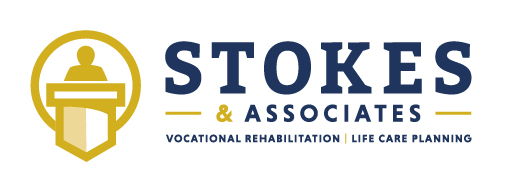Pediatric Vocational Assessments
A review of a recent study, “The validity of exploring educational attainment levels and occupational skill and physical strength demand levels of caregivers when evaluating loss of earning capacity in pediatric cases.”
Vocational rehabilitation counselors have specialized training and knowledge needed to assist injured individuals with workforce reentry. The expert opinion of vocational rehabilitation counselors can be valuable to the trier of fact in deciding the damages related to loss of future earning capacity of an injured individual, in both adult and pediatric cases.
In the field of vocational rehabilitation counseling, one generally accepted model for assessing pediatric earning capacity is the PEEDS-RAPEL© Model (Neulicht & Berens, 2005). The PEEDS portion of this model addresses pediatric vocational assessments by evaluating parental and familial occupations and educational attainment, as these factors are thought to be part of a preinjury predictor of educational attainment and career choice of the adult child.
A recent study from Sapp, Remley, and Range (2020) examined evaluee files to compare the relationship between the parent’s educational attainment level, and primary occupation to the adult child’s level of educational attainment, and primary occupation. This study found that there was a positive association between the primary caregiver’s level of educational attainment and the adult child’s level of educational attainment. There was also a positive association between the primary caregiver’s occupational skill level and the adult child’s occupational skill level and between the primary caregiver’s occupational, physical strength demand level, and the adult child’s occupational, physical strength demand level. The findings of this study support the pediatric vocational assessment model, the PEEDS-RAPEL© Model.
When vocational experts are in the position of making recommendations in the vocational assessment of a child, factors such as the caregivers’ educational level, occupational skill level, and occupational, physical strength demand level should be considered. These factors can assist the vocational expert in developing the basis for their vocational opinions in these types of cases (Sapp, Remley, & Range, 2020).
Sapp, L.H., Remley, T.P., Range, L.M. (2020). The validity of exploring educational attainment levels and occupational strength demand levels of caregivers when evaluating loss of earning capacity in pediatric cases. The Rehabilitation Professional, 28(1), 5-14.
We offer complimentary consultations concerning "hypothetical matters." To strategize with one of our life care plan or vocational experts at Stokes & Associates, please call David Barrett at 504-454-5009 or email dbarrett@stokesassociates.com.
Larry S. Stokes, Ph.D.
Aaron Wolfson, Ph.D.
Lacy Sapp, Ph.D.
Todd Capielano, M.Ed., LRC, CRC, LPC, CLC
Ashley Lastrapes, MHS, CRC, CCM, CLCP, LPC, LRC
